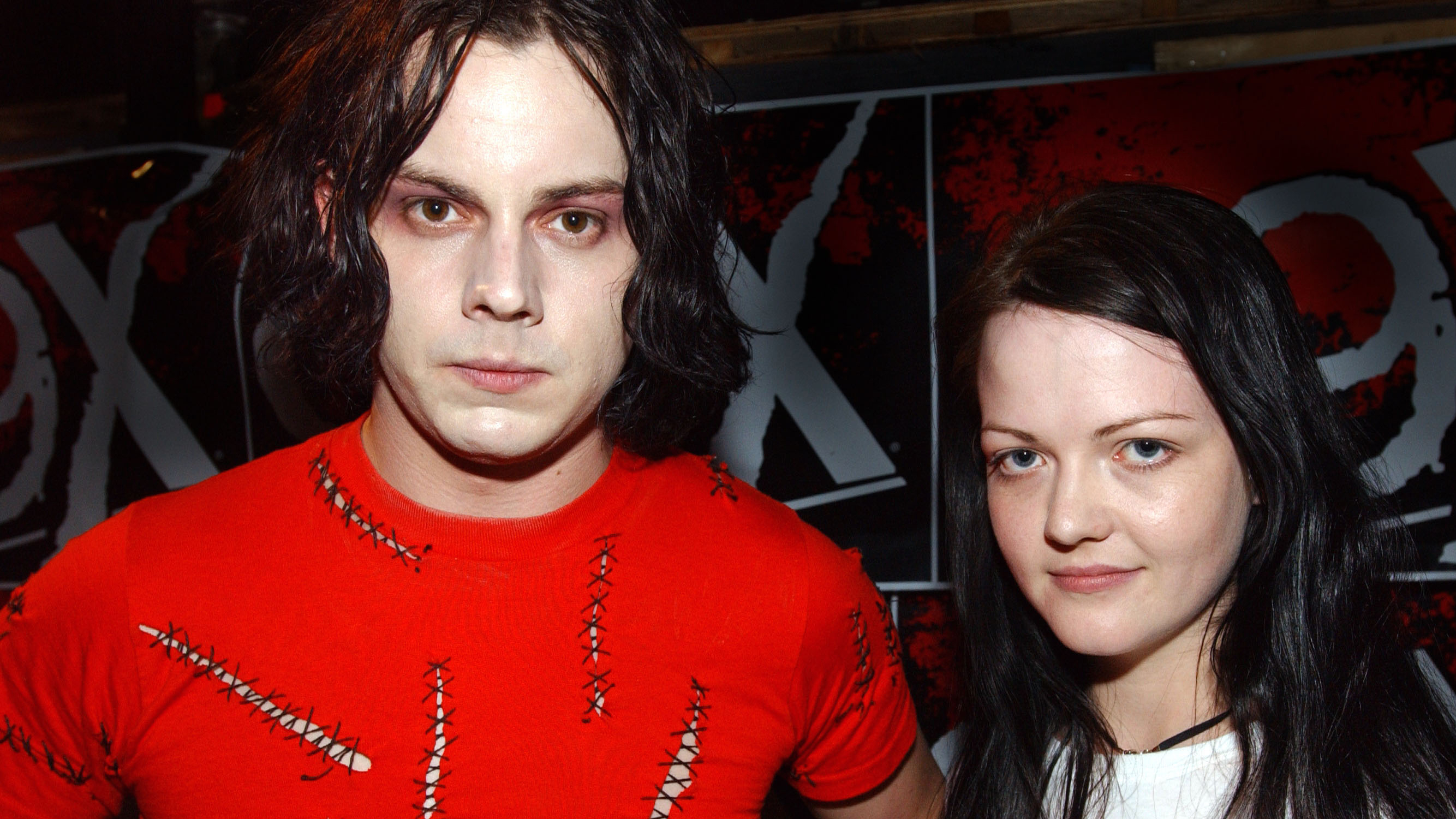“It was just a challenge to myself: ‘I’m not gonna have a chorus in this song. See if I can get away with it’”: How Jack White created the guitar riff of the century – and what is a Seven Nation Army, anyway?

BEST OF 2025: Join us for our traditional look back at the news and features that topped MusicRadar's charts in 2025.
Seven Nation Army by The White Stripes is that rarest of songs – one whose riff is a timeless classic and has become known as its own thing, totally separate from the musicians who wrote it.
Many songs have been turned into chants by sports fans – with lyrics altered to reference a team or player. What makes Seven Nation Army fascinating is that as a sporting anthem it has been reduced to just its signature guitar riff.
Game-goers sing the notes of the melody rather than the song’s actual lyrics, even though the hook-line “I’m gonna fight ’em off/A seven nation army couldn’t hold me back” would make for a great morale boost after going in 2-0 down at half-time.
Many of the fans singing this tune remain completely oblivious to its creators – a 21st century garage rock two-piece, based in Detroit, a duo who were once married and yet sometimes pretended to be brother and sister.
In 2002, guitarist/vocalist Jack White and drummer Meg White were writing songs for their fourth studio album Elephant, while red hot off the critical acclaim of 2001’s White Blood Cells.
The famous riff in Seven Nation Army was penned by White whilst on tour in Australia. He then played it for close friend and Third Man Records executive Ben Swank, who, having an absolute howler, suggested that White could “do better” and to disregard it.
Want all the hottest music and gear news, reviews, deals, features and more, direct to your inbox? Sign up here.
Believing the melody would work as a James Bond theme, White eventually resurrected the riff for The White Stripes after assuming that that particular pipe dream would not come to fruition. Little did he know some six years later he would get the call up to write a song for the Bond movie Quantum Of Solace – Another Way To Die, which he performed with Alicia Keys.
Seven Nation Army was so named because the young Jack once misheard the name of the Salvation Army. According to White, the song’s title came before any of the lyrics, simply as a way to identify the riff.
Seven Nation Army is notable for its lack of a vocal-driven chorus, instead using the riff as its main hook.
As White told Guitar World: “[It] was me trying to write a song without a chorus and still get people’s attention. At the time, I thought it was just a little experiment that not many people would care about. It was just a challenge to myself: ‘I’m not gonna have a chorus in this song. See if I can get away with it’. And on that one, we really did get away with it!”
The entire composition is based around the riff, beginning with what appears to be a solo bass guitar – something the two-piece had never been associated with.
However, White – a master guitarist manipulator – in fact recorded said part with a vintage Kay hollowbody electric guitar, pitch-shifted down an octave thanks to his trusty DigiTech Whammy pedal.
The song’s structure deploys a scaled-back version of the riff for each verse, before ramping things back up again for the main hook and ending with brief G and A chords, before starting over.
The song reaches its climax with one of White’s greatest and most singable solos, coloured by his signature distorted slide guitar sound.
The genius of the Seven Nation Army riff lies in its simplicity – perhaps the very same reason why Swank considered it underwhelming upon first listen.
Consisting of just five notes, all pitched closely together, it can be played on essentially any instrument, hummed, whistled or gargled with relative ease, thus making it perfect for large crowds struggling to stay in tune with each other (for contrast, imagine 60,000 England fans attempting to sing the riff to Led Zeppelin’s Black Dog in perfect time and pitch!).
Discussing the Seven Nation Army riff’s construction, Nate Sloan, co-host of the Switched On Pop podcast, said: “With the exception of the second note, the notes are all in sequence in the scale – like consecutive steps on a ladder. It's very egalitarian; the kind of riff that's the first thing you figure out when you're learning how to play guitar.”
Ideal for beginners, Seven Nation Army is recorded in E Standard tuning, written in the key of E Minor, and can be played by simply fretting the 7th, 5th, 3rd and 2nd frets across the A and D strings.
White reportedly used his favoured mid-’60s Sears Silvertone 1485 amp to record the Elephant album, and along with the Kay K6533 archtop and Digitech Whammy, he also employed an Electro-Harmonix Big Muff Pi for this song’s noisy solo.
Along with other Elephant tracks, Seven Nation Army was recorded at the analogue-equipped Toe Rag Studios in Hackney, London, and despite Swank’s earlier protests, the song was chosen as Elephant’s first single, released six weeks prior to the album on 17 February 2003.
The single reached the top of the UK Indie and US Alternative Airplay charts, and has gone multi-platinum on both sides of the Atlantic, as well as in countries such as Canada, Australia, New Zealand, Denmark, Italy and Spain.
With no chorus to hum, that earworm riff is no doubt the cause of the song’s popularity.
Seven Nation Army’s victory lap continued in February 2004, when it won Best Rock Song at the 46th Grammy Awards, alongside Best Alternative Music Album for Elephant – White’s first two Grammys of many.
Discussing the song’s legacy for NME in 2013, Daniel Martin said: “It’s debatable whether or not [it’s] their best song – we’d be here all week with that one. But it’s definitely their defining tune, the song which pushed them up from their garage rock beginnings to an entirely new level of acclaim.”
Though the White Stripes disbanded in 2011, White has continued to perform Seven Nation Army during his successful solo career.
As recently as September 2025, he chose the song to close his set at the CBGB Festival in Brooklyn.
When interviewed by Conan O’Brien on his show in 2014, White, a devoted Detroit Tigers fan, was asked if it feels strange hearing Seven Nation Army sung in sports stadiums, regardless of whether they know that White is in the audience – or whether they even know who White is.
“As a songwriter, that’s the greatest thing that could ever happen,” White enthused. “It becomes folk music as people take it over, and I don’t know of that many songs where [the crowd are] not singing words; they’re chanting a melody. It’s pretty unbelievable that [it] connected with people in that way – that it’s just a guttural feeling for them.”
Eight years later, featuring on O’Brien’s podcast, White explained how his relationship with the song has grown in the years since. As O’Brien tells it: “I remember sitting with you in Dodger Stadium, and they start to go [hums Seven Nation Army riff]… And I’m like, ‘this has become an anthem that is ubiquitous across the globe. Everyone knows how it goes, and it’s one of the most famous riffs ever.’”

Discussing the surreal notion of the song becoming more famous than its composer, White compared his experience with Seven Nation Army to the 1942 musical drama Yankee Doodle Dandy – a biopic of playwright and composer George M. Cohan. The film’s finale depicts Cohan (portrayed by James Cagney) witnessing marching US soldiers singing his song Over There, before one of them asks him, ‘What’s the matter, old timer – don’t remember this song?’, not realising he’s speaking to its composer.
“I think of that [film] every time I hear [Seven Nation Army] on a sports broadcast or something on TV,” White said. “It has the same feeling that it’s not mine anymore. The more people that don’t know where it came from, the happier I am. I’m sure many people are chanting the melody and have no idea what the song is and where it came from, and it doesn’t matter anymore… and that’s just amazing.”
I’m a writer and production editor who has worked on titles such as Total Guitar, Guitar World, Bass Player, Future Music and Computer Music magazines. I’ve played in a number of smalltime indie bands and have been honing my guitar skills for over 20 years, always looking to learn something new.
You must confirm your public display name before commenting
Please logout and then login again, you will then be prompted to enter your display name.

